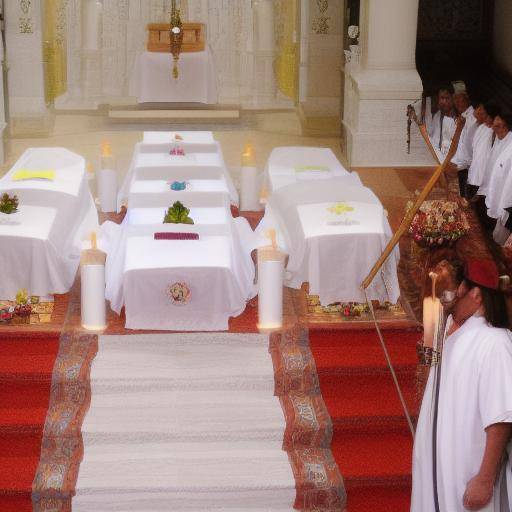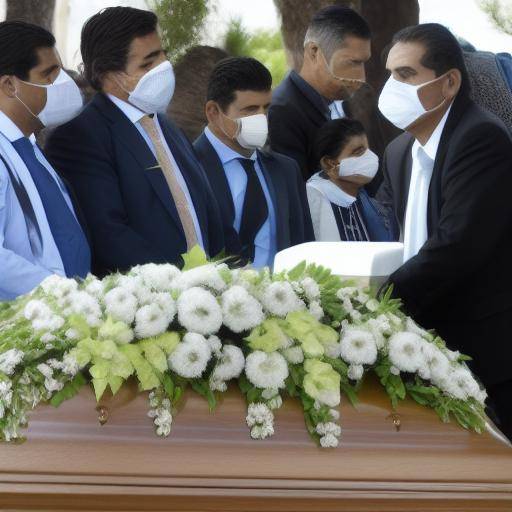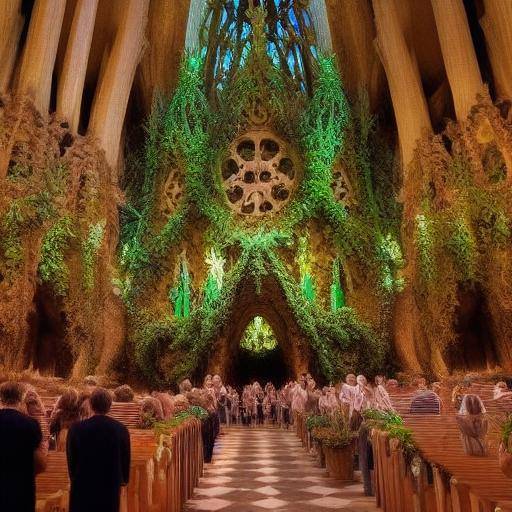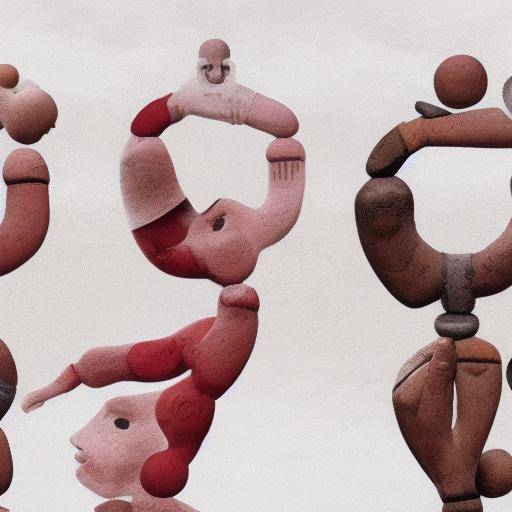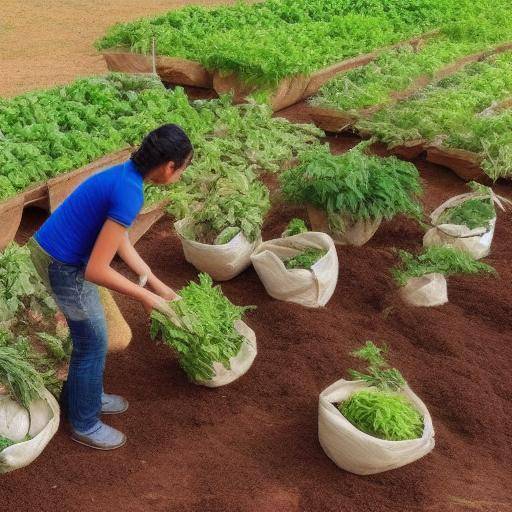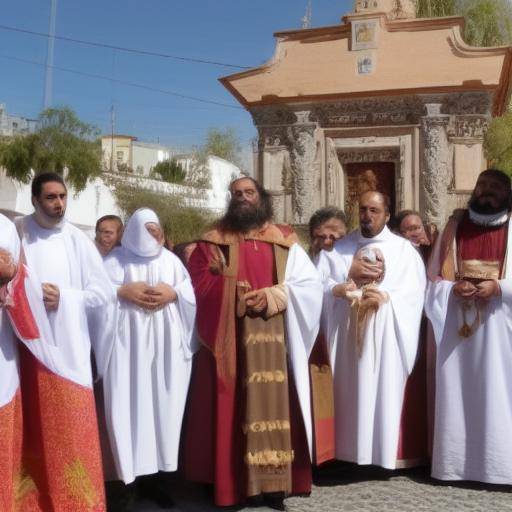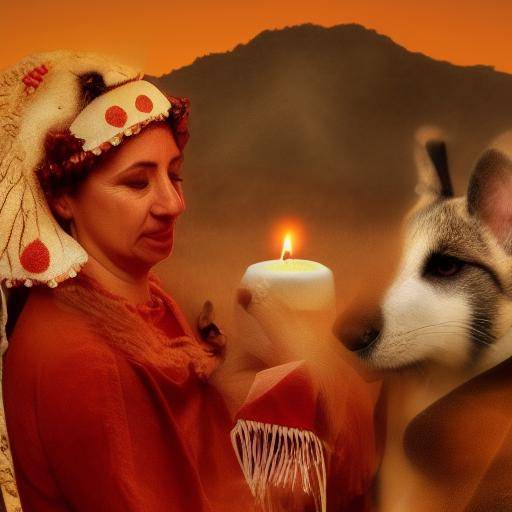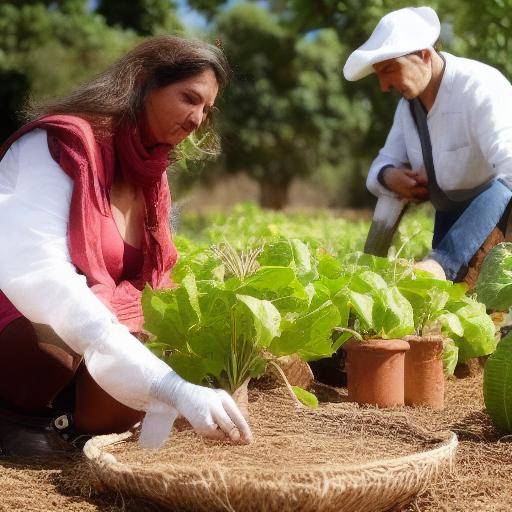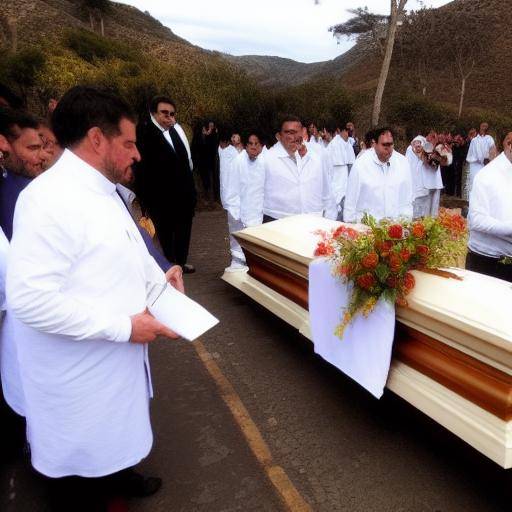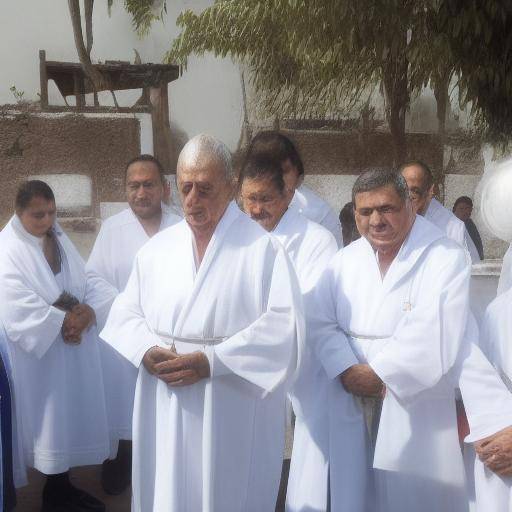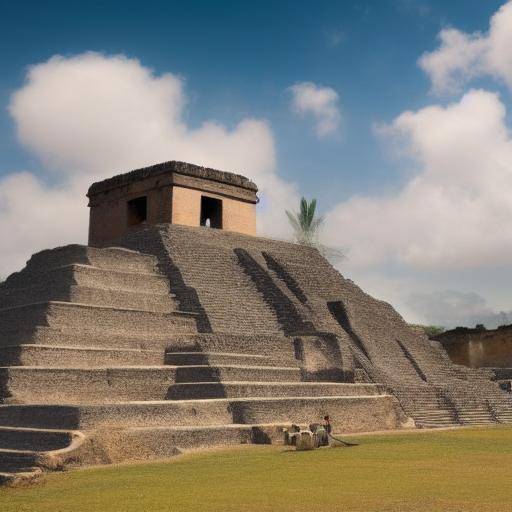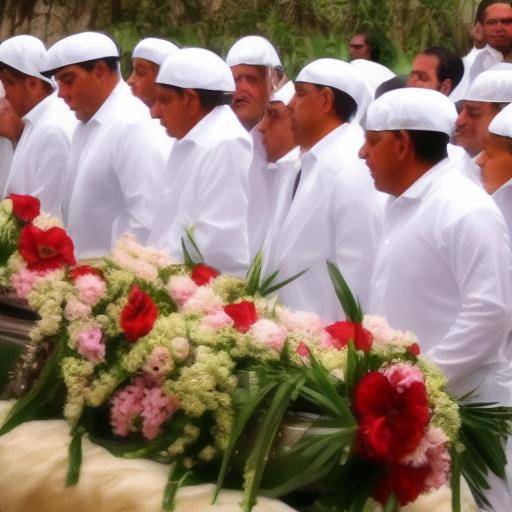
In the course of history, funeral rituals have been a common practice in different cultures around the world. The way in which the deceased are honored and their lives are closed can vary widely, but the importance of these rituals in relation to health, both emotional and physical, has been a subject of growing interest and study. In this article, we will thoroughly explore funeral rituals and their impact on health, and examine how these rituals can have a profound influence on the well-being of people.
History and Background
Funeral rituals have a rich and varied history dating back to thousands of years. From ancient civilizations to modern cultures, each society has developed its own traditions and ceremonies to commemorate loved ones who have passed away. These rituals not only serve as a way of honoring the deceased, but also play a crucial role in the mourning process of those who are left behind.
The first funeral rituals go back to prehistory, where archaeological remains have revealed elaborate burial practices that suggest beliefs in life after death and the importance of accompanying the deceased on his journey. With the emergence of civilizations such as Egyptian, Greek and Roman, funeral rituals acquired greater complexity and symbolism, incorporating elements such as the elaboration of tombs, farewell ceremonies and religious rites.
Throughout history, funeral rituals have evolved to reflect the values and beliefs of each culture, from the elaborate celebrations of life in some African cultures, to cremation practices in India. As the world has experienced social, religious and technological changes, funeral rituals have also experienced significant transformations, adapting to the needs and desires of contemporary communities.
Deep analysis
At present, funeral rituals continue to play a key role in the emotional health of people facing the loss of a loved one. These ceremonies provide a space for the expression of pain, reflection on the life of the deceased and the search for comfort in the community. Participation in funeral rituals can facilitate the mourning process and contribute to the mental and emotional health of participants by providing them with a sense of connection, belonging and closure.
In addition to the emotional impact, funeral rituals have also been studied in relation to physical health. Some research suggests that participation in funeral rituals can reduce levels of stress, anxiety and depression, which in turn can strengthen the immune system and promote general health. These findings support the idea that funeral rituals are not only important in the cultural and emotional sphere, but can also have tangible benefits for the health of participants.
The relationship between funeral rituals and health is not limited only to individual participants, but can also be extended at the community level. The ceremonies and rituals that bring together family, friends and community members can strengthen social ties, foster mutual support and promote a sense of solidarity in times of mourning. This sense of community and membership can have a positive impact on collective health by providing long-term support networks and emotional resources.
Comprehensive review
As the understanding of funeral rituals and their relationship with health continues to evolve, it is crucial to consider how these practices can be significantly adapted and applied in various cultures and contexts. The way a society addresses grief and loss can vary widely according to factors such as religion, social norms and cultural conditions, which underlines the importance of respecting and evaluating the various expressions of mourning. The wide range of funeral rituals around the world offers a rich source of knowledge and inspiration to address mourning in a way that resonates with the needs and values of each community.
In the modern era, technology and globalization have led to new forms of participation in funeral rituals. Online platforms and social networks offer opportunities to share memories, pay homage virtually and connect with people who are geographically distant. These innovations can expand the scope of funeral rituals and provide new forms of support and comfort in a digital environment.
In addition, more inclusive and personalized approaches are being developed for funeral rituals, reflecting a trend towards diversity and authenticity in mourning expression. People look for ways to honor the deceased in a unique and meaningful way, which has led to innovative practices that incorporate custom elements, such as creating interactive memorials or planting commemorative trees.
Comparative analysis
In examining the relationship between funeral rituals, health and personal connection, it is clear that there is a complex interaction between these elements. Funeral rituals provide a sacred space to process pain, find comfort and celebrate the life of the deceased, which in turn can have a positive impact on the emotional and physical health of those involved. Furthermore, the influence of funeral rituals in the community can strengthen social ties and promote a shared sense of support and compassion, which contributes to greater collective well-being.
Intercultural and comparative studies on funeral rituals reveal an astonishing diversity in practices and beliefs about death and mourning. In exploring the similarities and differences between funeral ceremonies in different cultures, our understanding of humanity is enriched and the universality of the desire to honor loved ones after their death is emphasized. This comparative perspective allows us to appreciate the wealth and variety of mourning traditions around the world and invites us to reflect on the importance of respecting and learning from the funeral practices of various cultures.
Practical Tips and Accessible Recommendations
If you are facing the loss of a loved one or want to support someone in mourning, here you have some practical tips to incorporate funeral rituals significantly:
- Actively participate in funeral rituals to honor the deceased and seek comfort in the community.
- Consider custom options to express your emotions and memories, such as creating a memorial or participating in commemorative activities.
- Find online and offline support resources that can provide guidance and understanding during the mourning process.
- Explore ways to keep the memory of the deceased alive through participation in remembrance activities and the preservation of tangible memories.
- Respect other people's traditions and beliefs in mourning, offering your support in a compassionate and respectful manner.
Ideas and Opinions of Experts on Industry
According to Dr. Juan Pérez, a psychologist specializing in mourning, "The funeral rituals are a fundamental part of the mourning process, as they provide a cultural and social framework to make sense
* to the loss experience. Active participation in these rituals can facilitate the expression of pain and foster a sense of connection and community among the afflicted."
Dr. María Rodríguez, a specialist in community health, highlights the importance of recognizing the public health aspects of funeral rituals. "The way communities face grief and honor their deceased may have a significant impact on emotional health and collective well-being. It is essential to foster inclusive practices and respect the various forms of mourning expression to promote community and mutual support at times of loss."
These expert perspectives highlight the importance of considering funeral rituals from multiple angles, integrating professionalism, compassion and expertise to support the emotional and physical well-being of people facing loss.
Case Studies and Real Life Applications
An outstanding example of the evolution of funeral rituals is the growing trend towards personalized and creative farewell ceremonies. Instead of strictly following established traditions, people are looking for innovative ways of honoring their loved ones by organizing unique commemorative events that reflect the life and interests of the deceased. These ceremonies range from planting trees in their honor to organizing music and art festivals that celebrate their legacy.
Another significant application of funeral rituals is seen in communities that have adopted intercultural and inclusive approaches to support mourners. These initiatives encourage the creation of safe and welcoming spaces where people from different cultural and religious backgrounds can share their mourning experiences and participate in rituals that honor various traditions.
Future Trends and Predictions
As society continues to evolve, we are likely to see a greater emphasis on personalization and inclusion in funeral rituals. People will seek innovative ways of honoring the deceased who reflect their individuality and values, which could lead to the development of more flexible and adaptive funeral practices.
In addition, technology is likely to play an increasingly significant role in the way we participate in funeral rituals. Digital platforms and online tools can provide new opportunities to connect, share memories and preserve legacy interactively and collaboratively.
Conclusion
Funeral rituals have played a fundamental role throughout human history, providing a cultural and social framework to give meaning to mourning and honoring the deceased. Its influence on emotional and physical health, as well as community cohesion, stresses the importance of considering and respecting the diversity of funeral practices worldwide.
By recognizing funeral rituals as a vital component of the mourning process, we can offer compassionate and meaningful support to those who face loss, promote emotional and community health, and cultivate a deeper understanding of the universal human experience of grief and loss.
Frequently asked questions
What are the differences in funeral rituals in different cultures?
Differences in funeral rituals can vary widely according to culture, religion and traditions. Some common practices include cremation, ceremonial burials, farewell ceremonies and the celebration of the life of the deceased. It is important to respect and value the diversity of cultural expressions around mourning and death.
How can I participate in a funeral ritual meaningfully?
Significant participation in a funeral ritual involves honoring and remembering the deceased, expressing your emotions and seeking comfort in the community. You can contribute in various ways, such as sharing memories, participating in commemorative ceremonies or supporting those who are mourning.
What is the importance of funeral rituals in emotional health?
Funeral rituals provide a framework to process pain, find comfort and emotionally connect with others in the mourning process. This expression of emotions and community support can significantly contribute to emotional health and well-being in times of loss.
How are funeral rituals evolving in the digital age?
The digital era has led to new forms of participation in funeral rituals, including the creation of online memorials, the transmission of real-time ceremonies and the preservation of digital memories. These innovations are expanding the possibilities of honoring the deceased and connecting people in times of mourning.
What impact do funeral rituals have on community health?
Funeral rituals can strengthen social ties, foster mutual support and promote a sense of solidarity in the community. This community connection can contribute to greater collective well-being by creating support networks, promoting compassion and offering comfort at times of loss.
How can I honor a deceased significantly if I do not engage in traditional funeral rituals?
If you do not participate in traditional funeral rituals, there are various alternative ways of honoring a deceased. You can create a personalized memorial, participate in activities that honor your legacy, such as donation to a cause that mattered to them, or share meaningful memories with others who share your loss.
Final words
In conclusion, funeral rituals play an essential role in the mourning process and emotional and community health. Its ability to provide a cultural and social framework to honour the deceased, facilitate mutual support and foster a sense of connection, underlines its importance in the universal human experience of mourning and loss. By recognizing and assessing the diversity of funeral practices worldwide, we can offer compassionate and meaningful support to those facing loss, fostering emotional and community health, and enriching our understanding and appreciation of human experience.
Funeral rituals are not only a way to honor the deceased, but they are also an expression of love, respect and connection that transcends cultural and temporal barriers. By assessing its profound impact on health and well-being, we can address mourning with understanding, empathy and respect, and cultivate a more compassionate and supportive community in times of loss.
Funeral rituals and their relationship with health invite us to reflect on our own understanding of grief, death and life, and to consider how we can support and nurture our human connections in moments of sadness and loss.
I hope this article has given you a deeper understanding and appreciation of funeral rituals and their relationship with health!

